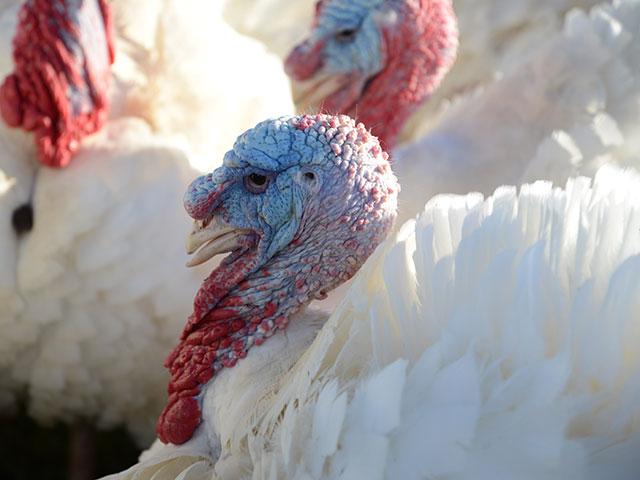HPAI Cases on Rise Again in Midwest
Avian Influenza Cases Growing Again, Mainly in Commercial Turkey Flocks
OMAHA (DTN) -- Highly pathogenic avian influenza again is hitting commercial flocks across the Midwest.
Iowa Gov. Kim Reynolds signed a disaster proclamation after a 50,000-bird commercial turkey flock was reported infected in Buena Vista County, Iowa.
Since Oct. 13, more than 260,700 birds have been infected, with the disease primarily hitting commercial turkey flocks with operations mostly in Minnesota, but also in South Dakota and now Iowa, according to reports posted to USDA.
USDA now reports 19 confirmed cases of highly pathogenic avian influenza (HPAI) in the past month.
P[L1] D[0x0] M[300x250] OOP[F] ADUNIT[] T[]
Since the current outbreak began in early 2022, more than 335 commercial flocks involving 59.36 million turkeys, chickens and other domesticated birds have been infected and forced to be euthanized, making this the largest foreign animal disease outbreak in U.S. history.
The Buena Vista, Iowa, flock was the first commercial flock hit in Iowa since last March.
Iowa Secretary of Agriculture Mike Naig cautioned owners of commercial and backyard flocks to prevent contact between their birds and wild birds.
HPAI is an airborne respiratory virus that spreads easily among chickens and turkeys through nasal and eye secretions, as well as manure. Avian influenzas are classified as either low or high pathogenic based on the ability of a particular strain to produce the disease in domestic poultry. The virus can be spread in various ways from flock to flock, including by wild birds, through contact with infected poultry, by equipment, and on the clothing and shoes of caretakers. Most wild birds often do not show signs of illness, but HPAI can be fatal to domestic birds and some wild species.
According to the U.S. Centers for Disease Control and Prevention, the recent HPAI detections in birds do not present an immediate public health concern. No human cases of these avian influenza viruses have been detected in the United States. It remains safe to eat poultry products. As a reminder, the proper handling and cooking of poultry and eggs to an internal temperature of 165 degrees Fahrenheit kills bacteria and viruses.
No state has reported more HPAI cases than Iowa, which now totals more than 16 million chickens and turkeys that have been euthanized since the outbreak began. The Iowa governor's declaration allows the Iowa Homeland Security, the Iowa Department of Agriculture and Land Stewardship, and other agencies to assist with tracking and monitoring, rapid detection, containment, disposal, and disinfection. The proclamation also waives regulatory provisions related to commercial vehicles responding to affected sites.
Chris Clayton can be reached at Chris.Clayton@dtn.com
Follow him on X, formerly known as Twitter, @ChrisClaytonDTN
(c) Copyright 2023 DTN, LLC. All rights reserved.




